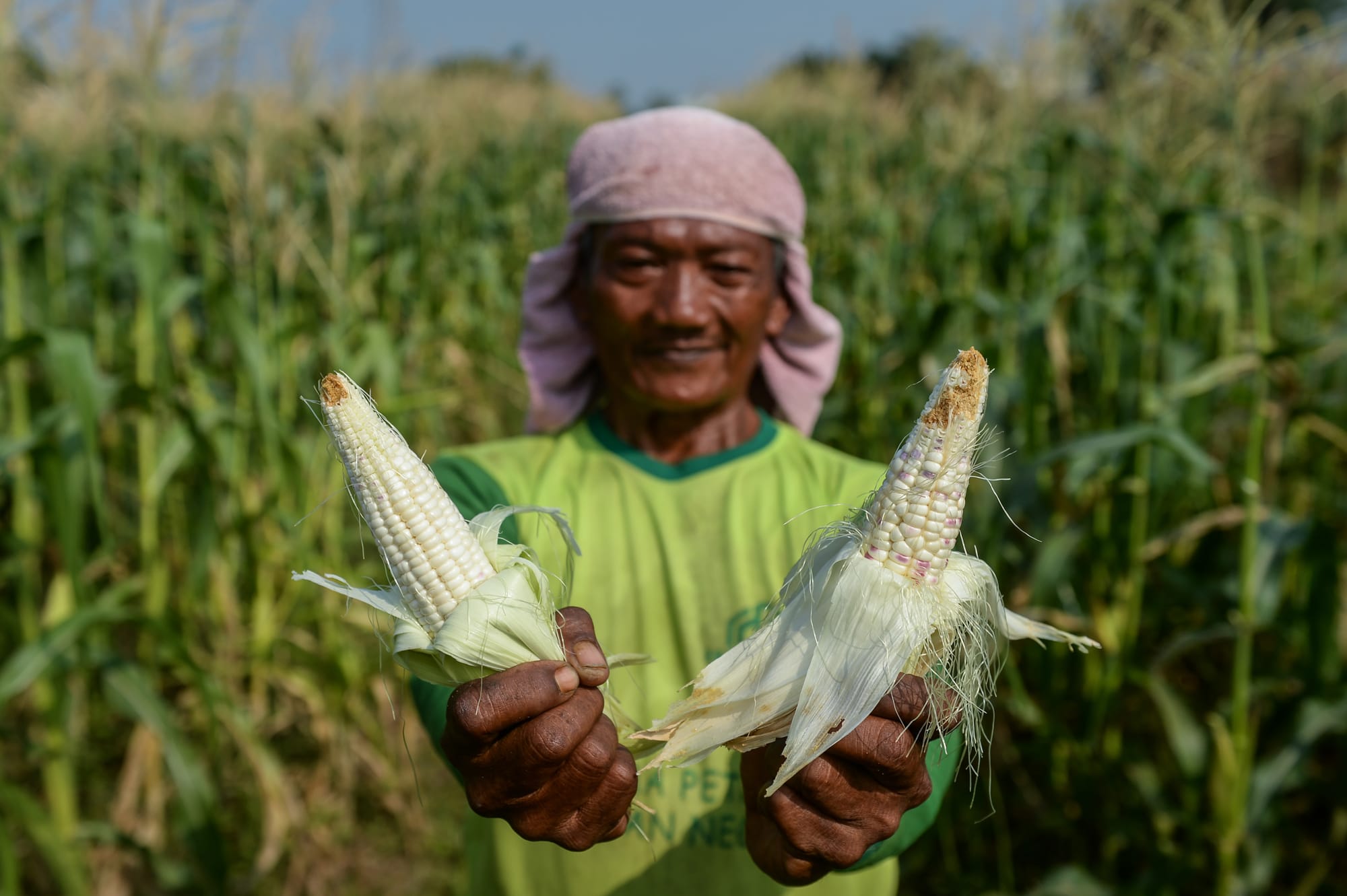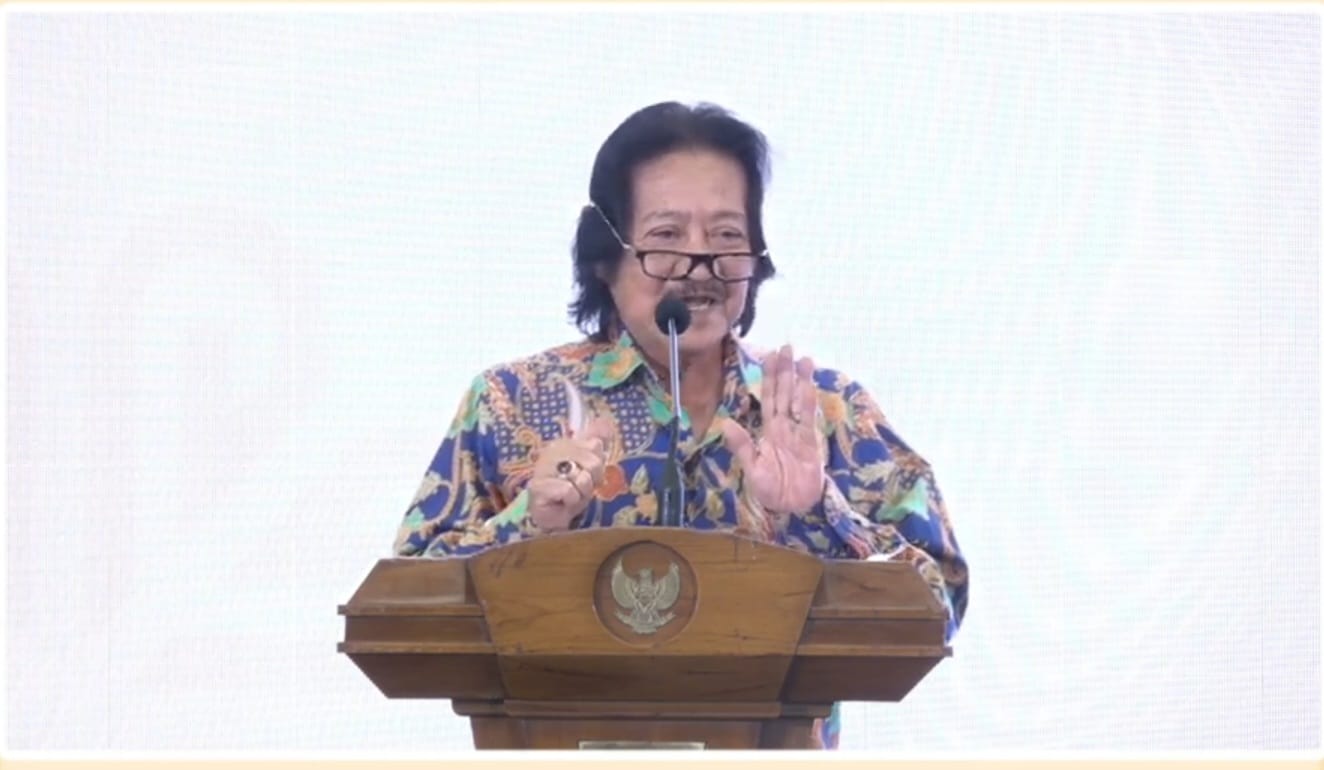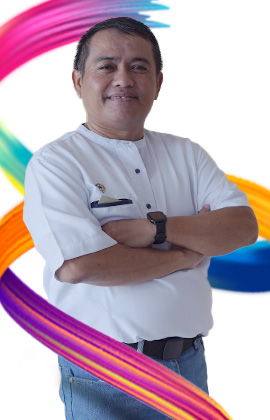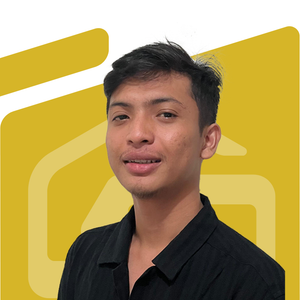Entrepreneurs are usually associated with the image of scraping as much profit as possible. However, there are also philanthropic entrepreneurs who have a vision that their business is not only about pursuing profit but also about empowering the community and the surrounding environment. This philanthropic practice of the business world can successfully have a real positive impact.
The atmosphere of the Filantropi Indonesia Festival 2025 (FIFest2025) felt warm with an online discussion entitled Synergizing in Sustainable Development Financing, Monday, (4/8/2025). An inspiring story from Central Sulawesi stole the attention of the speakers and listeners in the discussion.
This is real proof of how the synergy of three collaborations between PT Syngenta Seed Indonesia and Wahana Visi Indonesia (WVI) has succeeded in changing the fate of thousands of cocoa farmers who had slumped. Through a partnership program since 2018, they introduced corn cultivation as a solution to increase income and rebuild the local economy.
Regional Sales Manager of PT Syngenta Seed Indonesia, Bahtiar Manadjeng, told the story of this program which started in 2018. He explained that this initiative started from concern for the condition of cocoa farmers who lost their income.
When the program started, farmers' knowledge about corn cultivation was very limited, which resulted in very low productivity, only 2 tons to 3 tons per hectare.
This condition is in stark contrast to other corn center areas in Indonesia such as Gorontalo, South Sulawesi, and East Java which have reached 8 tons–9 tons per hectare. Syngenta and WVI took the initiative to introduce corn commodities as an alternative.
"This is very concerning, so we and WVI at that time initiated how to encourage farmers who lost their jobs from cocoa commodities to be able to start with a new commodity, namely corn," he explained.

The turning point of this program began with a trial plot or demonstration plot in Palolo sub-district, Sigi Regency. The assisted cocoa farmers successfully planted 4 kilograms of corn seeds and produced nearly 4 tons.
Impressed by the initial results of corn cultivation in Palolo sub-district, Bahtiar projected, "If they plant 1 hectare, seeing the productivity per kilogram, it's above 10 tons. Because the soil in Palolo, Sigi Regency, Central Sulawesi is very fertile."
This success story quickly spread, triggering the formation of trial plots in various locations involving thousands of farmers. The impact was extraordinary, not only on crop yields but also on the lives of the farmers.
"The most touching thing is actually the farmers involved in this program. We met them, and 3-4 years later they had changed, their houses had become brick houses. Then there were cars parked in front of their houses, and they said it was thanks to the corn commodity," he said.
In addition to providing cultivation knowledge, this program also focuses on building a sustainable business ecosystem. Syngenta and WVI formed Entrepreneurial Service Points (ESP), a distribution network at the village level that provides seeds and fertilizers. They even facilitated training for local entrepreneurs and even comparative studies to corn centers in South Sulawesi.
The impact of this collaboration is also evident from Syngenta's business side. From corn seed sales worth 300 million rupiah in 2018, their business soared dramatically to 18 billion rupiah in 2024. This increase not only benefits the company but also encourages investment to enter Central Sulawesi from buyers of shelled corn for animal feed.
This program also reaches vulnerable groups in line with the SDG (sustainable development goals) principles of justice and equality.
"We are also moving towards farmers with disabilities, including women farmers, we train them, for example, on how they can master financial management," he said.
Bahtiar, who has been directly involved in this program from the start, is proud of the results. "Personally, I think the impact is extraordinary, not only in terms of business for Syngenta, but also socially, for the community, and for economic growth," he said.
As proof of its success, corn productivity per hectare in Central Sulawesi has now exceeded 5 tons. The province has also succeeded in becoming the third-largest corn producer in Sulawesi, after South Sulawesi and Gorontalo.
This success, he said, is the result of solid collaboration between Syngenta, WVI, and various other stakeholders.
Strategic partnerships and community empowerment
Wahana Visi Indonesia (WVI), as a philanthropic organization focused on community empowerment, applies a strategic approach to helping farmers, especially the most vulnerable. Currently, WVI operates in 15 provinces and 61 regencies/cities. Since 2017, they have also been members of the Indonesian Philanthropy Association (PFI).
To fund its activities, WVI uses various sources of funding, both from individuals and institutions, including government and non-government parties. In recent years, WVI has developed a new funding model called public-private partnership (PPP).
Contribution to sustainable development
Chairman of the Advisory Board of the Indonesian Philanthropy Association, Fransiscus Welirang, said that the business world is not only about making profits, but can also contribute to development in the surrounding community. This behavior is commonly referred to as philanthropy.

Franky, as he is familiarly called, explained that philanthropy comes from two words, 'filan' which is a translation from the Latin 'philo' which means love and 'tropis' which comes from 'antropis' or humans.
“So philanthropy, more or less, the free translation is loving one another,” said Franky.
Minister of National Development Planning/National Development Planning Agency (Bappenas) Rachmat Pambudy said that the business world has the financial capacity and reach to participate in empowering sustainable development.
“Synergy and participation from all stakeholders are needed for sustainable development,” said Rachmat.

Rachman Kurniawan, Manager of the Environmental Development Pillar of the National Secretariat for Sustainable Development Goals (SDGs), appreciated this collaboration as a real example of good practices that support the achievement of the SDGs. "Solid partnerships like this produce good practices that have a real impact," he said at the same event (4/8/2025).
The Indonesian government has made the SDGs an integral part of the National Medium-Term Development Plan (RPJMN), and encourages cross-sector partnerships to achieve these targets by 2030. The Sustainable Development Goals (SDGs) are a set of 17 global goals with 169 measurable targets, adopted by UN member states in 2015.
These SDGs are the world's development agenda for peace and prosperity for people and the planet Earth, both now and in the future.

According to Rachman, the collaboration between Syngenta and WVI touches on various SDGs targets, ranging from poverty alleviation and food security to decent work. He emphasized that Indonesia has shown good progress in achieving the SDGs with an average of 61%, far better than the global achievement of only 18%.
To accelerate the achievement of the 2030 target, SDGs, together with the Ministry of National Development Planning/National Development Planning Agency (Bappenas), continue to promote the "Decade of Action" through partnerships involving all parties, from government, academia, civil society, to the private sector.
"We uphold the principle of no one left behind, which means all parties must be involved and benefit," he added.
To expand the impact of this good practice, the Indonesian SDGs Secretariat manages a dashboard repository containing summaries of more than 700 good practices in various locations. This aims to replicate existing successes and encourage the massive and sustainable achievement of the SDGs throughout Indonesia.


